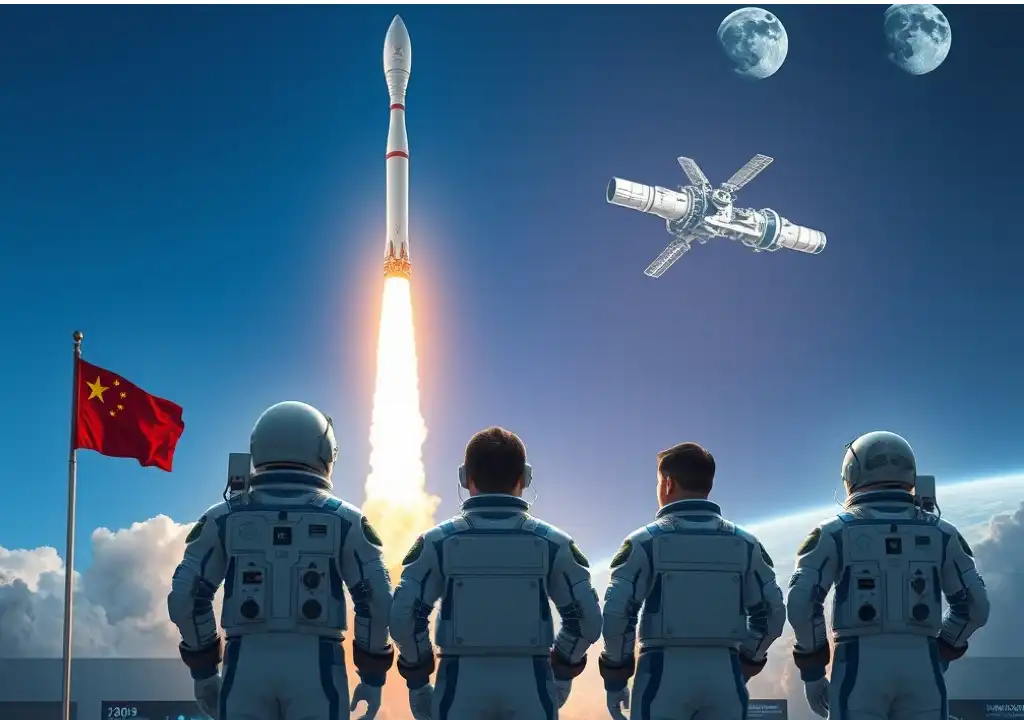China has launched its youngest-ever crew of astronauts on a six-month mission to its space station, marking another milestone in the country’s rapidly expanding space program, which aims to land humans on the Moon by 2030.
The Shenzhou-17 mission launched at 11:14 AM local time (03:14 GMT) on Thursday from the Jiuquan Satellite Launch Center in northwest China aboard a Long March 2F rocket. The crew, consisting of three astronauts, is led by 48-year-old former air force pilot Tang Hongbo, who was part of the first crewed mission to the Tiangong space station in 2021. Joining him are Tang Shengjie, 33, and Jiang Xinlin, 35, both on their first spaceflight. This mission sets a record for the youngest crew, with an average age of 38.
The mission was confirmed a success around 15 minutes after launch, marking a key moment in China’s growing space ambitions.
China’s Expanding Space Program
Under President Xi Jinping, China’s space ambitions have accelerated, with billions of dollars invested into its space program, aiming to rival the United States and Russia. The Tiangong space station, completed in late 2022, can house up to three astronauts at an altitude of 450km (280 miles) and is designed to operate for more than 15 years.
The Shenzhou-17 crew will replace the Shenzhou-16 astronauts, who have been stationed at Tiangong since May and are scheduled to return to Earth on October 31.
Moon Landing Plans and Expanding Astronaut Selection
Beijing has set its sights on sending a crewed mission to the Moon by 2030, with plans to establish a base on the lunar surface. Deputy director Lin reaffirmed this goal on Wednesday, emphasizing that China’s lunar landing mission will proceed on schedule.
In a shift from past practices, China is broadening its astronaut selection process. While initial crews were comprised exclusively of air force pilots, the latest recruitment for the fourth group of astronauts is open to candidates with doctoral degrees in fields like biology, physics, biomedical engineering, and astronomy. Additionally, for the first time, the selection process is now open to applicants from Hong Kong and Macau.
China’s crewed space program also plans to open joint space missions, allowing foreign astronauts to fly aboard the Tiangong space station. Fluency in Mandarin, the station’s working language, will be a requirement for international candidates.

